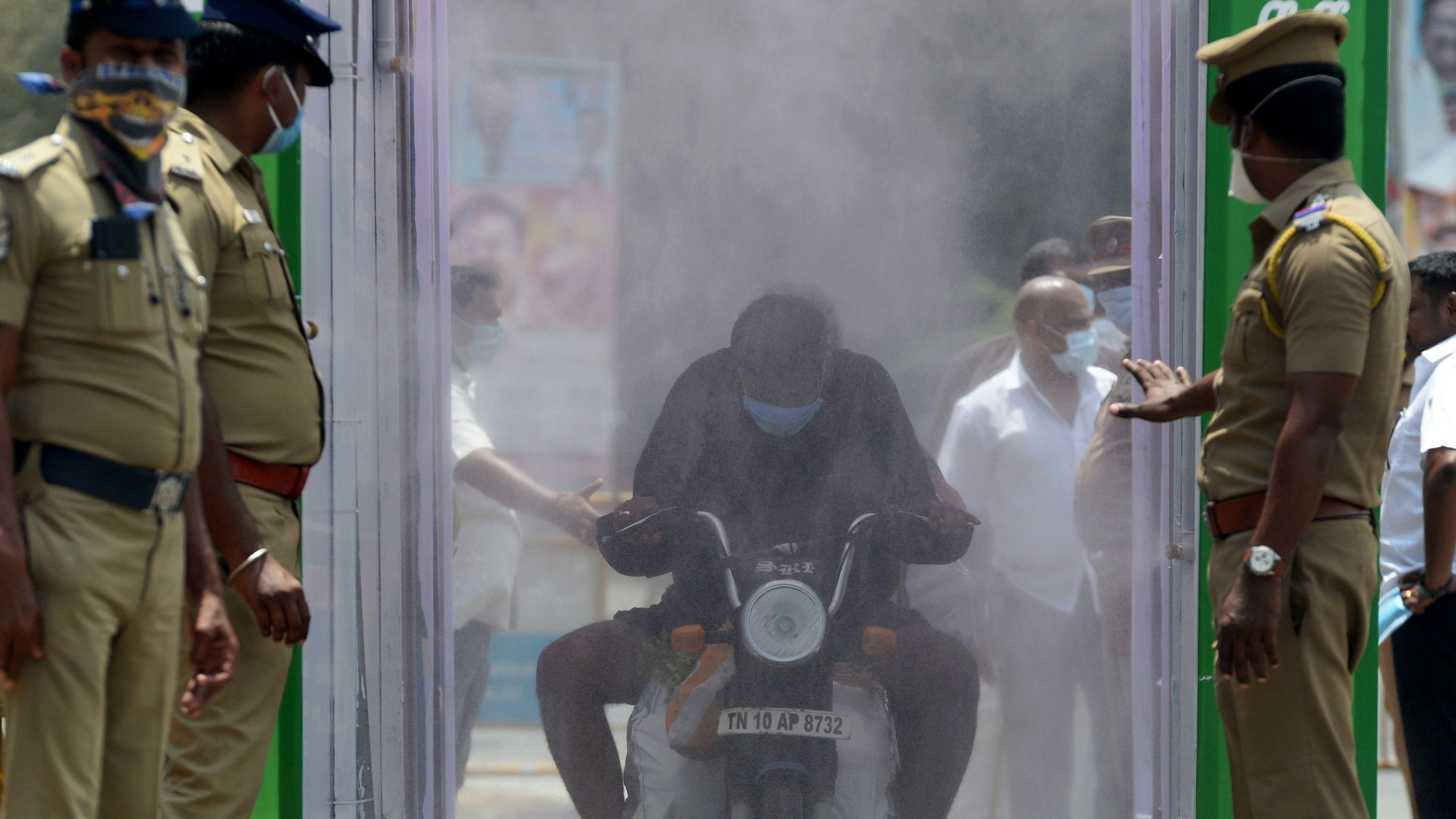How India may have suppressed coronavirus while reopening its economy
Experts left searching for answers after dramatic - and unexplained - decline in Covid infections

A free daily email with the biggest news stories of the day – and the best features from TheWeek.com
You are now subscribed
Your newsletter sign-up was successful
Scientists are struggling to find answers to the question of why coronavirus infections in India have suddenly plummeted from record highs.
In September, the country was at one point on course for the biggest toll worldwide, reporting around 100,000 infections per day. But just months later, that figure has fallen to around 11,000 despite the country taking no obvious steps that would have triggered such a drastic change in infection rates.
The sudden fall in cases has also played out in hospitals, where official figures released in September showed that 90% of critical care beds with ventilators were occupied in New Delhi compared with just 16% last week.
The Week
Escape your echo chamber. Get the facts behind the news, plus analysis from multiple perspectives.

Sign up for The Week's Free Newsletters
From our morning news briefing to a weekly Good News Newsletter, get the best of The Week delivered directly to your inbox.
From our morning news briefing to a weekly Good News Newsletter, get the best of The Week delivered directly to your inbox.
Experts have scrambled to explain the drop, with possible explanations ranging from the suggestion “that some areas of the country may have reached herd immunity or that Indians may have some pre-existing protection from the virus”, Al Jazeera reports.
Antibody studies have suggested “results above 50%”, Giridhar Babu, an epidemiologist at the Public Health Foundation of India, told The Times. “That itself is likely to be an underestimate. So the most densely-populated areas are already saturated and reaching the threshold of herd immunity.”
The Indian government, meanwhile, has “partly attributed the dip in cases to mask-wearing, which is mandatory in public in India, with violations drawing hefty fines in some cities”, the broadcaster adds.
Adding to the experts’ confusion, many “safeguards” against the virus have been dropped in India, The Times says. “The economy has reopened fully, with just primary schools left to return” and potential “superspreader events are now becoming commonplace” with Prime Minister Narendra Modi restarting political rallies that attract hundreds of thousands of supporters.
A free daily email with the biggest news stories of the day – and the best features from TheWeek.com
Vaccines have also been “ruled out” as the cause of the decline in infections, as the country’s rollout “didn’t begin until January - although this is expected to brighten the outlook even further”, Sky News adds. Around seven million Indians have so far been vaccinated, according to Oxford University tracking, with the government pledging to give the jab to 300 million by July.
While the drop in infections is welcome, experts are racing to figure out the reason behind the sudden decline. Dr Shahid Jameel, who studies viruses at India’s Ashoka University, told Sky News: “If we don’t know the reason, you could unknowingly be doing things that could lead to a flare-up.”
Joe Evans is the world news editor at TheWeek.co.uk. He joined the team in 2019 and held roles including deputy news editor and acting news editor before moving into his current position in early 2021. He is a regular panellist on The Week Unwrapped podcast, discussing politics and foreign affairs.
Before joining The Week, he worked as a freelance journalist covering the UK and Ireland for German newspapers and magazines. A series of features on Brexit and the Irish border got him nominated for the Hostwriter Prize in 2019. Prior to settling down in London, he lived and worked in Cambodia, where he ran communications for a non-governmental organisation and worked as a journalist covering Southeast Asia. He has a master’s degree in journalism from City, University of London, and before that studied English Literature at the University of Manchester.
-
 Political cartoons for February 22
Political cartoons for February 22Cartoons Sunday’s political cartoons include Black history month, bloodsuckers, and more
-
 The mystery of flight MH370
The mystery of flight MH370The Explainer In 2014, the passenger plane vanished without trace. Twelve years on, a new operation is under way to find the wreckage of the doomed airliner
-
 5 royally funny cartoons about the former prince Andrew’s arrest
5 royally funny cartoons about the former prince Andrew’s arrestCartoons Artists take on falling from grace, kingly manners, and more
-
 A Nipah virus outbreak in India has brought back Covid-era surveillance
A Nipah virus outbreak in India has brought back Covid-era surveillanceUnder the radar The disease can spread through animals and humans
-
 How music can help recovery from surgery
How music can help recovery from surgeryUnder The Radar A ‘few gentle notes’ can make a difference to the body during medical procedures
-
 Covid-19 mRNA vaccines could help fight cancer
Covid-19 mRNA vaccines could help fight cancerUnder the radar They boost the immune system
-
 The new Stratus Covid strain – and why it’s on the rise
The new Stratus Covid strain – and why it’s on the riseThe Explainer ‘No evidence’ new variant is more dangerous or that vaccines won’t work against it, say UK health experts
-
 RFK Jr. vaccine panel advises restricting MMRV shot
RFK Jr. vaccine panel advises restricting MMRV shotSpeed Read The committee voted to restrict access to a childhood vaccine against chickenpox
-
 RFK Jr. scraps Covid shots for pregnant women, kids
RFK Jr. scraps Covid shots for pregnant women, kidsSpeed Read The Health Secretary announced a policy change without informing CDC officials
-
 New FDA chiefs limit Covid-19 shots to elderly, sick
New FDA chiefs limit Covid-19 shots to elderly, sickspeed read The FDA set stricter approval standards for booster shots
-
 RFK Jr.: A new plan for sabotaging vaccines
RFK Jr.: A new plan for sabotaging vaccinesFeature The Health Secretary announced changes to vaccine testing and asks Americans to 'do your own research'